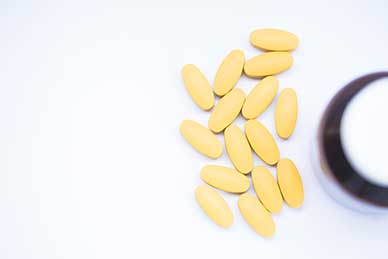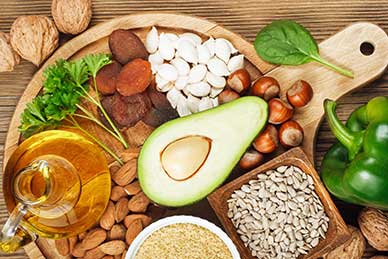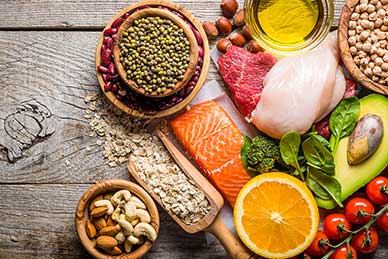There are treatments for many types of cancer, but many come with uncomfortable side effects. New studies on vitamin C and cancer suggest that this vitamin may offer hope as a safe and natural adjunct treatment.
Cancer is one of the leading causes of death in the world, killing nine million people per year around the globe. While there are many treatments that can cure or slow the progression of this disease, these can have debilitating side effects such as weight loss, hair loss, nausea, vomiting or even death. Around 40 percent of us will have cancer of some kind before we die, which means that many who are reading this now will one day have to experience some of these unpleasant cancer treatment side effects. However, new research indicates that vitamin C may be a safe, natural way to make traditional cancer treatments more effective and even help fight cancer on its own.
Benefits of Vitamin C
Long ago, sea captains noted that giving sailors limes prevented the development of scurvy and other serious diseases. Today we know that this is due to vitamin C. We also know that this vitamin has a long list of health benefits in addition to preventing scurvy. It is an important cofactor in a variety of crucial biochemical reactions and also acts as an antioxidant. Vitamin C is necessary to form healthy collagen, an ingredient in our skin and bones, as well as to make our stress hormones. Because it is a water-soluble vitamin, it is not toxic at any level. While people who take too much of it may experience some diarrhea, it is impossible to overdose even when taking super-doses. The half-life of the vitamin is simply too short for toxic levels to build up.
More recent research suggests that this vitamin may be important in more than merely preventative roles. It has been found to lower the incidence of death from cardiovascular disease. In large doses given by IV, it may also improve the outcomes of cancer treatment.
Vitamin C and Cancer Cells
Nobel prize winner Linus Pauling long ago hypothesized that vitamin C may be able to benefit those with cancer. New research suggests that he was correct. When cancer patients were given megadoses of this vitamin in addition to taking the prescribed radiation and/or chemotherapy, they had fewer side effects and better outcomes. In fact, patients with glioblastoma, a deadly brain cancer, survived four to six months longer.
This is not the first study to find that there is a therapeutic benefit to taking high doses of vitamin C and cancer treatments at the same time. A previous study found that people who took vitamin C while being treated for ovarian cancer suffered fewer side effects and had less toxicity to their organs. Researchers believe that this is due to several factors. First, because vitamin C is an antioxidant and also part of several key enzymatic reactions, having an ample supply ensures that healthy cells can recover more quickly from side effects of cancer treatment. Second, vitamin C appears to have a negative effect on the mitochondria of cancer cells, shutting down metabolism while creating free radicals that eventually kill the cell. This process specifically targets cancer and cancer stem cells, which can help both in treatment and in slowing the metastasis of this disease.
While more studies will need to be performed in order to understand exactly why vitamin C affects cancer treatment and how much is needed, it currently appears that this vitamin may have real benefits. This brings up the question: Can getting enough vitamin C help to protect against cancer?
Are You Getting Enough Vitamin C?
 There is currently no known connection between vitamin C deficiency and higher rates of cancer. However, this topic has yet to be studied extensively. It intuitively makes sense that getting enough of a cancer-fighting antioxidant may help to prevent cancer from developing in the first place. Because getting enough vitamin C is crucial to health in a variety of ways, many doctors recommend that people either take a vitamin supplement or eat plenty of the following foods:
There is currently no known connection between vitamin C deficiency and higher rates of cancer. However, this topic has yet to be studied extensively. It intuitively makes sense that getting enough of a cancer-fighting antioxidant may help to prevent cancer from developing in the first place. Because getting enough vitamin C is crucial to health in a variety of ways, many doctors recommend that people either take a vitamin supplement or eat plenty of the following foods:
- oranges and other citrus fruit
- leafy green vegetables such as spinach and kale
- chili peppers
- bell peppers
- cruciferous vegetables such as broccoli, cauliflower and Brussels sprouts
- papayas, pineapple, mangoes and other tropical fruits
- strawberries
These foods are all delicious parts of a healthy diet, so it is easy to get enough vitamin C to support good health with a little effort.
While modern medicine has brought us many benefits, natural remedies and good nutrition also play an important role in promoting good health. Getting enough vitamin C and other nutrients likely has benefits that we do not even know about yet. Eating a well-rounded diet and taking natural supplements are two of the most important ways that you can stay healthy both now and in the future.
 A meta-analysis is one of the most compelling types of evidence. In this type of research, scientists compile all of the numbers from different studies to find a solid conclusion. These are especially valuable in cases where there are multiple small studies with conflicting evidence, which is the case with vitamin C for colds. Researchers performed a meta-analysis of the hundreds of studies on vitamin C to settle the controversy once and for all. This meta-analysis found that
A meta-analysis is one of the most compelling types of evidence. In this type of research, scientists compile all of the numbers from different studies to find a solid conclusion. These are especially valuable in cases where there are multiple small studies with conflicting evidence, which is the case with vitamin C for colds. Researchers performed a meta-analysis of the hundreds of studies on vitamin C to settle the controversy once and for all. This meta-analysis found that  While there appears to be a genetic predisposition to diabetes, it also is
While there appears to be a genetic predisposition to diabetes, it also is  Exactly what nutrients and vitamins help to sustain good vision? Several research studies have given us a solid idea about which natural ingredients work best. Macular degeneration is one of the major causes of vision loss associated with aging. Over years and decades, most people develop yellow deposits in their maculae, that are called drusen. We know from several studies that antioxidant vitamins can protect against much of the damage from macular degeneration by preventing these deposits of drusen. These antioxidants include vitamins such as vitamin C, vitamin E, beta carotene, zinc and copper. In fact, when these vitamins are taken together, they have been found to
Exactly what nutrients and vitamins help to sustain good vision? Several research studies have given us a solid idea about which natural ingredients work best. Macular degeneration is one of the major causes of vision loss associated with aging. Over years and decades, most people develop yellow deposits in their maculae, that are called drusen. We know from several studies that antioxidant vitamins can protect against much of the damage from macular degeneration by preventing these deposits of drusen. These antioxidants include vitamins such as vitamin C, vitamin E, beta carotene, zinc and copper. In fact, when these vitamins are taken together, they have been found to  Why all this focus on vision? Most people wish to keep clear eyesight as long as we can. In addition, March is Workplace Eye Wellness Month, a time to focus on preventing eye damage and preserving good vision. In addition to
Why all this focus on vision? Most people wish to keep clear eyesight as long as we can. In addition, March is Workplace Eye Wellness Month, a time to focus on preventing eye damage and preserving good vision. In addition to  What does this mean for people who are not high-performance athletes? You may be having trouble building muscle mass or suffering more soreness than usual because of not getting enough of this important vitamin. Even in people who had no other health effects, the lack of vitamin D manifested itself in a higher rate of muscle injuries. Taking vitamin D may be as important to building strong muscles as eating enough protein.
What does this mean for people who are not high-performance athletes? You may be having trouble building muscle mass or suffering more soreness than usual because of not getting enough of this important vitamin. Even in people who had no other health effects, the lack of vitamin D manifested itself in a higher rate of muscle injuries. Taking vitamin D may be as important to building strong muscles as eating enough protein. If you want to get your skin ready to be bared, there are several natural ingredients that can help you on your way. Consider taking a supplement that contains some of the following skin-friendly vitamins and herbs:
If you want to get your skin ready to be bared, there are several natural ingredients that can help you on your way. Consider taking a supplement that contains some of the following skin-friendly vitamins and herbs: